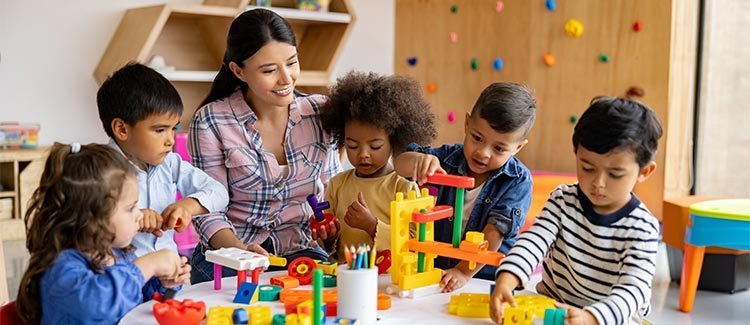
Preschool education lays the foundation for a child’s future academic success. The early years are crucial for cognitive, social, and emotional development, making preschool an integral part of a child’s educational journey. Understanding the importance of these formative years, let’s delve into the world of preschool education.
The Role of Preschool in Child Development
Preschool acts as a playground for cognitive and social development. In this nurturing environment, children learn to interact, share, and communicate. Cognitive skills blossom through activities that stimulate the young mind, fostering a love for learning that lasts a lifetime.
Key Components of an Effective Preschool Curriculum
A successful preschool curriculum incorporates play-based learning, recognizing that children absorb information best through play. Integrating literacy and numeracy into games and activities not only makes learning enjoyable but also builds a strong foundation for future academic achievements.
The Impact of Quality Teachers on Preschool Education
Teachers play a pivotal role in shaping a child’s preschool experience. Effective preschool teachers possess qualities such as patience, creativity, and a deep understanding of child development. Nurturing teacher-student relationships create a positive learning environment, fostering growth and curiosity.
Challenges in Preschool Education
Despite its importance, preschool education faces challenges, including limited access and affordability. Addressing the diverse learning styles of children poses another hurdle. Overcoming these challenges is crucial for providing equal opportunities for all children.
Innovations in Preschool Teaching Methods
Embracing technology and inclusive education practices are transforming preschool teaching. Interactive learning apps and adaptive teaching methods cater to diverse learning needs. Inclusive education ensures that every child, regardless of abilities, has access to quality education.
Parental Involvement in Preschool Education
Parents are key stakeholders in a child’s education. Actively engaging with preschool activities and creating a supportive home environment enhances a child’s overall learning experience. Collaboration between parents and teachers contributes to a child’s holistic development.
Benefits of Early Intervention Programs
Early intervention programs identify learning disabilities and challenges early on. Tailoring educational strategies to individual needs ensures that each child receives the support required for optimal development. Early intervention paves the way for a more inclusive and accessible education system.
The Future of Preschool Education
Looking ahead, trends in preschool education include technological advancements and global perspectives. The integration of artificial intelligence and virtual reality into early learning experiences opens new possibilities. Globally, recognizing the universal importance of early childhood education is reshaping policies and approaches.
Conclusion
In conclusion, preschool education sets the stage for a child’s lifelong learning journey. By addressing challenges, embracing innovation, and fostering collaboration among teachers, parents, and policymakers, we can create a future where every child has access to high-quality preschool education.


